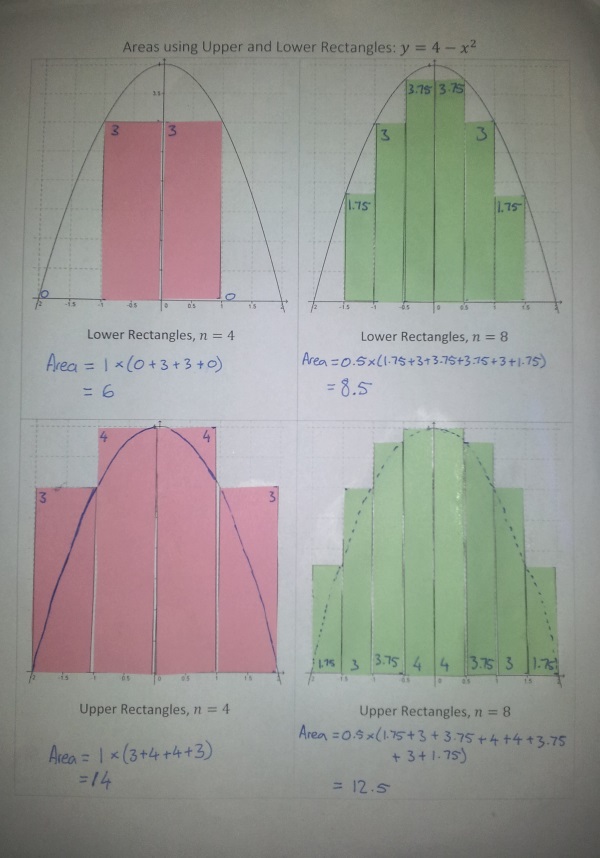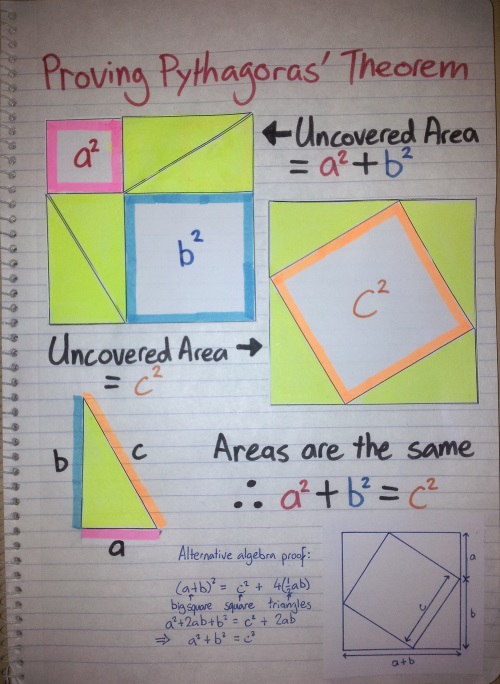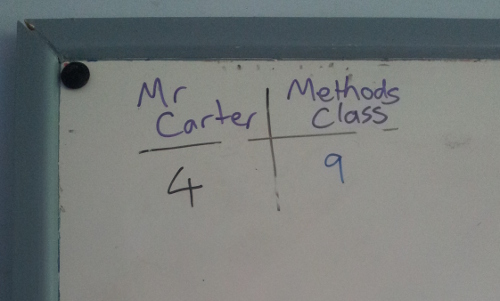I had a student ask me the other week, “Teachers are always writing reports about us. When do we get to write a report about the teachers?” Well, I thought, why not?
Actually that’s a lie. I’d already decided to gather feedback from my classes weeks ago, but the fact that one student asked this question was a convenient way to start this post :). But seriously, isn’t the whole point of writing student reports so they know what they need to do to improve (well, that’s the theory at least). Though they really aren’t the experts they think they are on what teachers do, students are more than willing to let us know what they think of how we do our jobs. If we want to improve as teachers, it might be a good idea to at least listen to them from time to time.
I decided to use the “Keep, Change, Start, Stop” format and set up a Google docs form to collect responses from students. I thought I might share some of the feedback I got and maybe even respond to it. In each section, I’ve tried to order it from most common to least common feedback. The first class I got responses from was Year 9.
Keep
New Things Thursday. YES! YES! YES! This was overwhelmingly the most popular response. If you missed it, I introduced New Things in this post. I will absolutely continue it in Term 3.
Monday Science Pracs. Something I haven’t explained yet on this blog: our school has a slightly different Year 9 program, the result of which is that I actually teach a combined maths and science subject we call “Exploration” with another teacher. I mostly focus on the maths, but we have one lesson a week with both teachers in the room on Monday, which is when we tend to do science pracs.
Pythagoras’ Therom or however you spell it. Good. I wasn’t planning on getting rid of it. Not that I’d have a choice in the matter anyway. But more significantly, I’ve been trying a few different things in this unit (including New Things), which students seem to be more enthusiastic about.
Your beard. I grew a beard over the last school holidays, which has split student opinion between “It’s awesome” and “It’s scary”. I’m sorry to the jealous boys in my class, I think it’s only going to be a one term thing.
Change
Less book work. I’m pretty sure you meant “less textbook questions” by this. I agree – I’ve been guilty of falling into the too-many-textbook-exercises trap on a few occassions. I’ve been trying to get away from using it as much as possible lately – I promise I’ll keep doing that.
Let us leave class to fill up our water bottles. No. Just no. You know it’s a school rule, and you know you have recess and lunch to fill it up. Don’t waste my time just because you can’t mangage yours properly. (Can you tell I’ve had this conversation a lot over the semester?)
Make questions easier. If you mean “make questions clearer and more approachable”, then yes, I will try to do that. If you mean “let me not have to think in your class”, then no.
Make maths more fun. I’ll keep trying to do this. But my idea of this might be a little different than yours. I believe that maths is fun (because I am a crazy person), and my job is to help you understand it better so you can see how awesome it is. (But if you mean “teach us with different maths activities”, then sure, I’ll make more of an effort to do this).
Start
Most of the feedback here was repeats of the first two questions, but there were some new points.
Short quizzes at the start of the lesson where you time us. I’m pretty sure I did something like that two years ago when I had your class in Year 7, and you guys hated it! But OK, I’ll think about it.
Free time on Friday. No.
Give us more feedback on our work. I agree, this is something I need to work on.
Yes. Ummm, what? (This really was one of the responses. The same student wrote “No” for Stop).
Stop
Stop counting. I assume by this you mean the thing I do to get your attention when you’re all too noisy? (I quietly count by fives, which lets the class know I’m waiting for them. I go up by five because I used to say “five seconds, ten seconds, …” but they kept correctly pointing out that I usually only take three seconds for each count). There’s a simple solution to this – if you’re all quiet when I ask you to be, I won’t have to do it 🙂
Nothing, I guess. Well, that’s good to hear! But I’m under no illusions. Even if I get to the point where my class thinks I’m perfect, I know there will be improvements I can make.
I think that’s a good start for thinking about where I am with my teaching at the moment, but there’s a lot more reflection to do over the two week break. (And anyway, this is only one of my classes). If you’ve never gathered feedback from your students before, it could be a good idea. It’s a little scary giving students permission to examine and comment on your teaching practice, but they know what you do in the classroom better than anyone else. But it can’t stop here. The only feedback of value is that which leads to improved pedagogy – and I think that’ll take harder work than just letting students write a few things about you.


